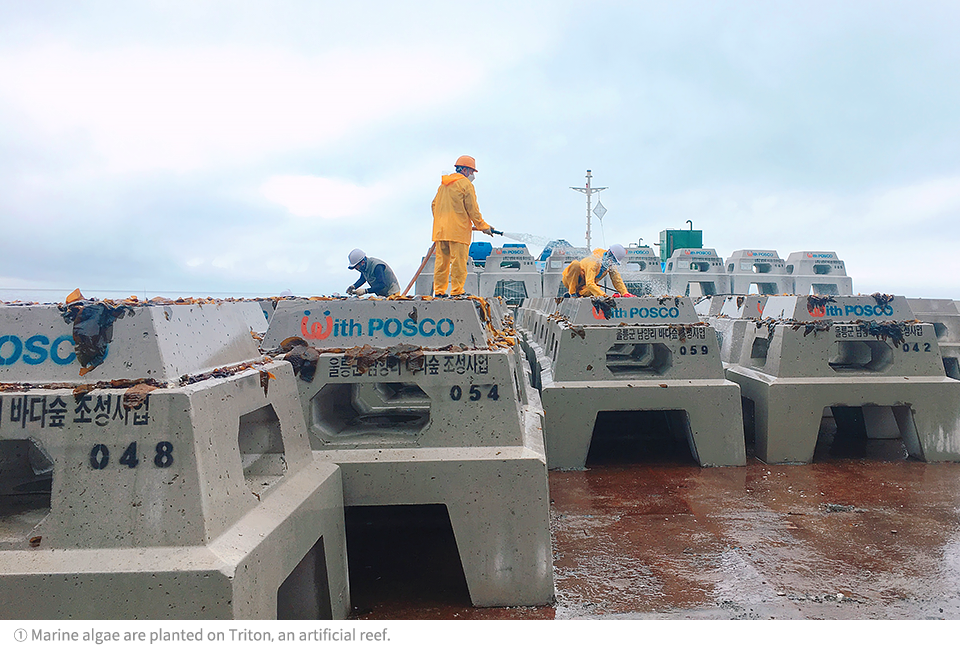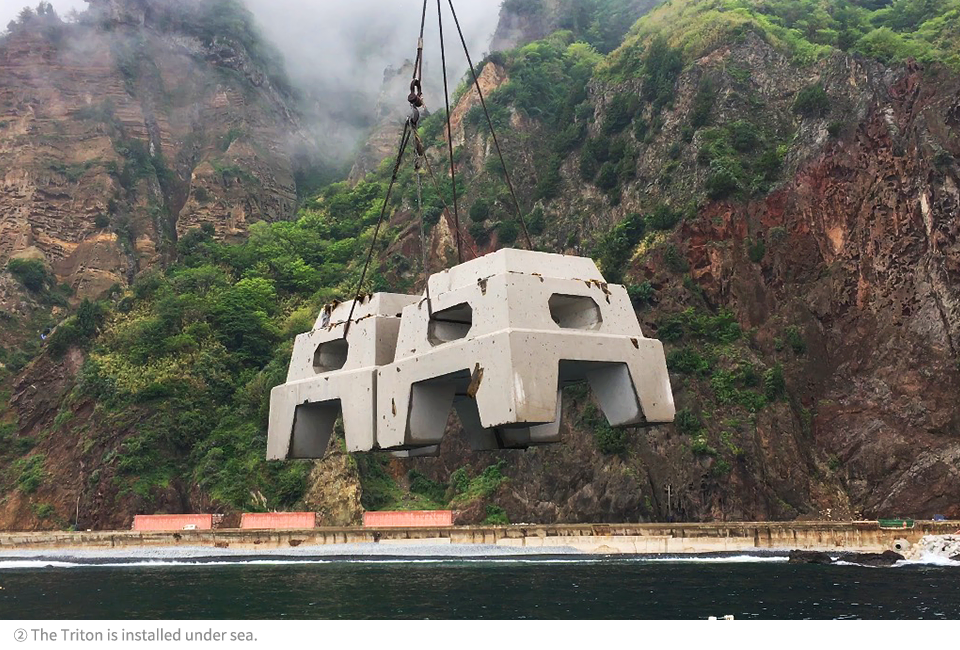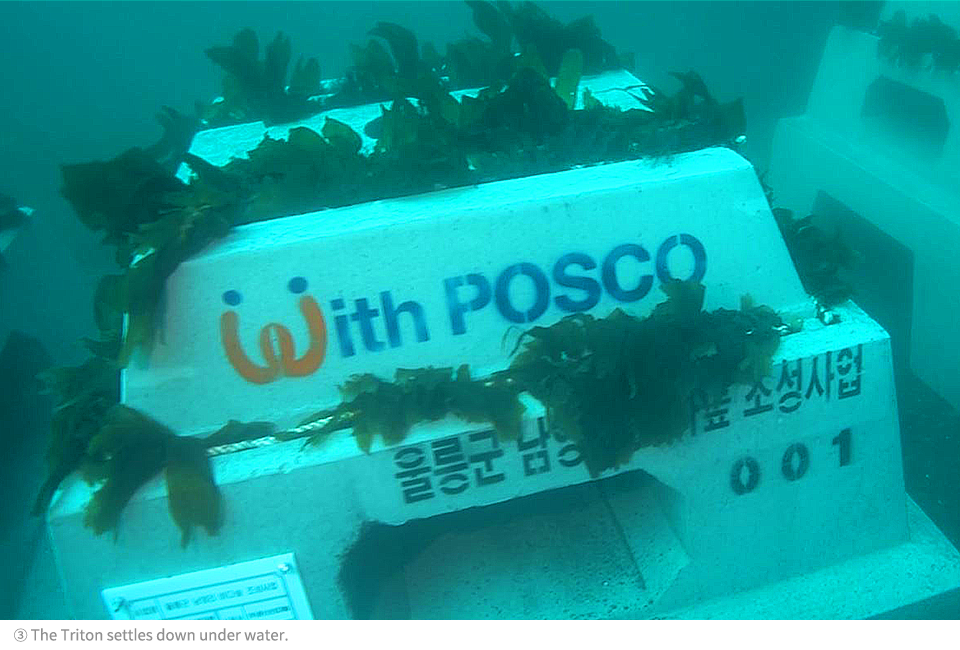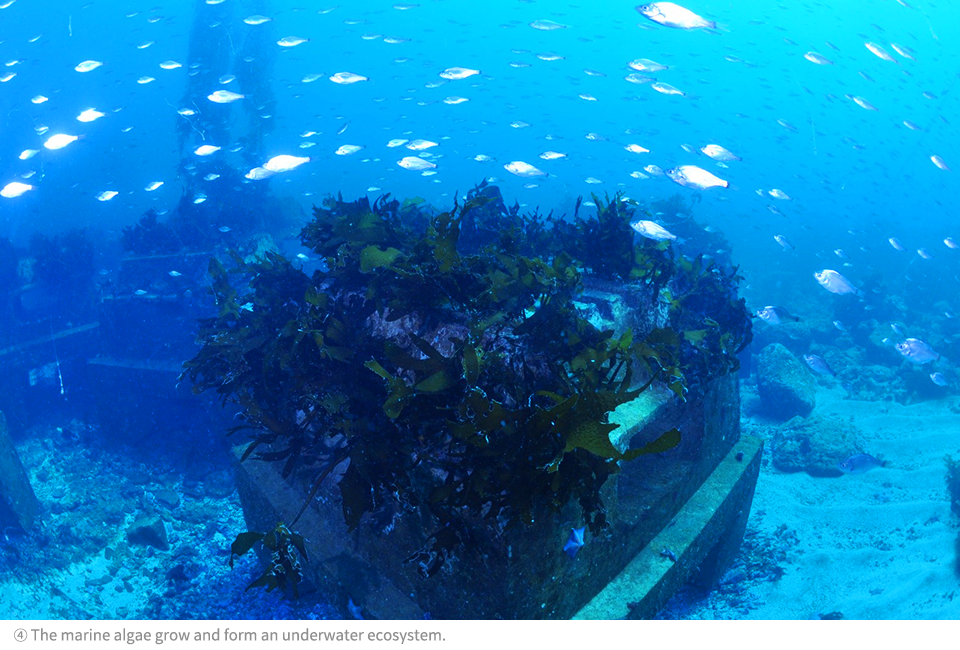l POSCO’s Triton Sea Forestation Project acknowledged for its sustainability
l 7,654 of Triton, artificial reefs made with POSCO’s steel slag, installed in more than 30 different sea forests in South Korea
On October 14, POSCO (CEO Jeong-Woo Choi) was selected as the winner for the ‘Excellence in Sustainability’ category at the 11th Steelie Awards organized by worldsteel.
The Steelie Awards assesses the contribution of worldsteel member companies or individuals to the steel industry over one year in seven categories that include Sustainability, Innovation, Life Cycle Assessment, Education and Training, etc. This year, the winners of the awards were announced online due to the COVID-19 pandemic.
Other candidates shortlisted in the Sustainability category included Brazil’s Gerdau and USIMINAS, Japan’s JFE Steel, Russia’s Novolipetsk Steel, and Mexico’s Ternium. Among them, POSCO was selected as the winner for its sea forest cultivation project, which contributes to the restoration of the marine ecosystem using Triton reefs. Triton reefs are made from slag, a by-product of steelmaking.
This year is the second time POSCO has been selected in the Sustainability category, following the first in 2010. The company was awarded the “Innovation of the Year” in 2012, 2015, 2017, and 2019.
POSCO’s sea forest cultivation project is one of the six major Corporate Citizenship activities that utilize Triton reefs made of slag. The Triton reefs installed in seas threatened by sea desertification tend to cultivate a sea forest with abundant marine algae.
Steel slag, the main material of Triton, has high mineral contents such as calcium and iron, which are very useful for nurturing the growth of marine algae. Due to its high specific gravity and strength, there is little risk of damage to a typhoon or tsunami when installed underwater.
In 2000, POSCO, together with RIST(Research Institute of Industrial Science and Technology), developed Triton, an artificial reef made with steel slag which is a co-product of the steelmaking process. Up to date, it has provided free steel slags for a total of 7,654 Tritons in 30 different sea forests in South Korea.
■ The cultivation process of the Triton sea forest




